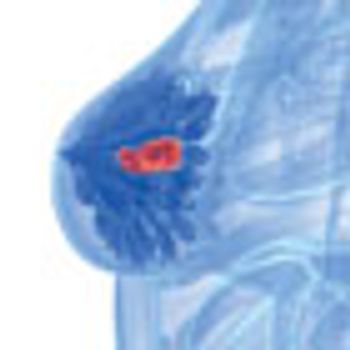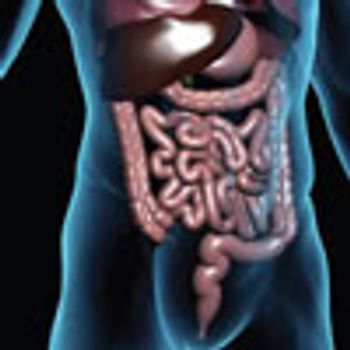
New research has found that the overall survival of male patients with breast cancer has improved over time, but the improvement is not as good as it has been for female patients with breast cancer

New research has found that the overall survival of male patients with breast cancer has improved over time, but the improvement is not as good as it has been for female patients with breast cancer

A third of patients in a large study reported distress within the prior month

New research presented at the 2014 San Antonio Breast Cancer Symposium has shown that women with triple-negative breast cancer (TNBC) are more likely to seek out information about their specific subtype and experience more fear, anxiety, and worry than women with other subtypes of breast cancer,

Findings from a long-term analysis of the Women's Intervention Nutrition Study (WINS) show that the deaths of women with hormone receptor–negative breast cancers were reduced by up to 54% when they followed a program to reduce their dietary fat intake, which could provide benefit for patients with triple-negative breast cancer.

Five years of tamoxifen continues to offer protection against breast cancer, reducing the risk of breast cancer by 29% in otherwise healthy women at high risk of the disease who have been followed now for 16 to 22 years.

For individuals living in rural areas, getting a genetic test can impose its own set of barriers, like multiple long trips for counseling, testing, and follow-up. However, findings of a new study published in the Journal of the National Cancer Institute have shown that telephone counseling was just as effective as in-person counseling in many respects.

Survival for patients with head and neck cancer squamous cell carcinoma (HNSCC) was better if they used a proton-pump inhibitor and/or a histamine receptor-2 antagonist to control acid reflux.

Considering participation in a clinical trial is often a very difficult decision for patients, especially those dealing with a rare disease.

Despite research findings that toxicities outweigh benefits when women over the age of 70 are treated with radiation for their early-stage breast cancer, the treatment remains commonplace 10 years later, a new study has found.

The FDA has granted an accelerated approval to the anti-CD19 immunotherapy blinatumomab as a treatment for patients with Philadelphia chromosome-negative relapsed/refractory B-precursor acute lymphoblastic leukemia.

Two studies suggest that treatment during pregnancy does not appear to negatively impact neurologic or cardiac fetal development.

The FDA has approved ruxolitinib (Jakafi) as a treatment for patients with polycythemia vera (PV) who are resistant or intolerant to hydroxyurea, marking the first treatment specifically approved for patients with PV.

A group of researchers looking to better equip patients to be self-managers of their cancer have developed a new tool to help patients communicate their treatment goals more effectively.

Despite the proven benefits of SBRT for patients with inoperable stage I NSCLC, whether such patients are offered it depends on their race, insurance status, and the type of facility where they are being treated.

We are pleased to open the application period for our annual Fellows Symposium.

A genomic test (also called a genomic assay) analyzes the activity of a group of genes linked to the risk of a particular disease.

Alain H. Rook, MD, Professor of Dermatology, University of Pennsylvania, Perelman School of Medicine provides part one of a three part overview of treatments for cutaneous lymphoma.

After 4 years of living with inflammatory breast cancer, Amy Berman, RN, BS, senior program officer at the John A. Hartford Foundation, said she felt fine during her speech at The American Journal of Managed Care's Patient-Centered Oncology Care meeting in Baltimore, Maryland.

The Colon Cancer Alliance is holding a summit, titled "Fighting a Smarter War on Colorectal Cancer" on December 4-6th.

Unusual, but does occur.

With open enrollment now underway to sign up for or change their coverage under the Affordable Care Act, oncology nurses and navigators may be hearing questions from cancer patients, survivors, and their family members about navigating this still relatively new insurance marketplace.

The poly (ADP-ribose) polymerase (PARP) inhibitor veliparib exhibits antitumor activity and is safe and tolerable on a continuous dosing schedule when used for the treatment of patients with BRCA-positive and BRCA–wild type tumors.

Findings from two studies are shining a light on demographic and socioeconomic factors impacting who will be diagnosed with colorectal cancer (CRC), who is more likely to die from it, and what preventive measures might make a difference.

According to recent estimates, approximately 62,980 people in the United States will be diagnosed with thyroid cancer in 2014, a nearly 5% increase from 2013.Thyroid cancer affects people of all ages, from young children to seniors.Its incidence is rapidly increasing among all age groups, and thyroid cancer is especially common in women, who represent three of every four people diagnosed with the disease.

Office practice identifies ways to improve monitoring and adherence.

Skin care is an important topic for every individual, but for cutaneous lymphoma patients, skin care can be the key to greatly improving your quality of life. By educating yourself about your skin, there are many things that you can do to keep your skin moisturized, soft and comfortable.

The Centers for Medicare & Medicaid Services (CMS) announced that the agency plans to cover lung cancer screening using low-dose computed tomography (LDCT) for certain former and current smokers, a decision that could affect an estimated 4 million people.

When trained, advanced practice nurses followed up written heart screening guidelines with telephone calls to survivors of childhood cancers, screening uptake more than doubled among those who received the telephone-based counseling.

A study released by the international nonprofit Cancer Support Community found that more than half of patients with cancer feel unprepared to discuss treatment options with their medical team, a significant finding given the high burden patients with cancer carry across a number of dimensions.

New data has shown that states that have higher rates of cervical cancer incidence and mortality also have low HPV vaccination rates among young women.